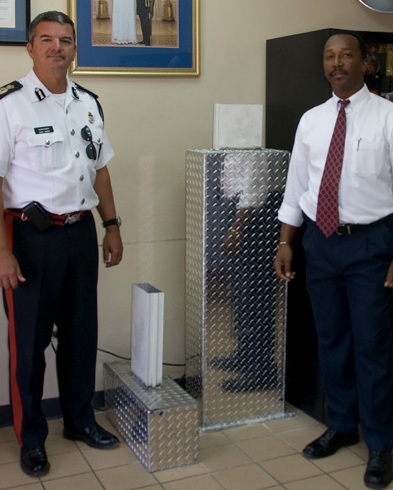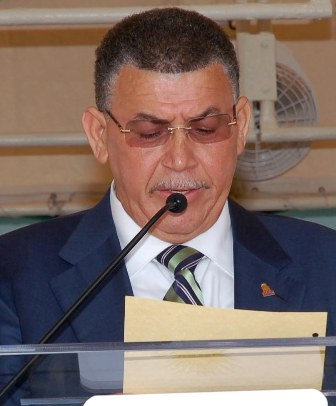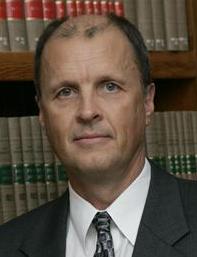Archive for May 10th, 2010

Man arrested after woman stabbed in neck
 (CNS): Police said this evening that officers are continuing their enquiries following the arrest of a 26-year-old man on suspicion of attempted murder. At about 8:13 on Sunday evening, 9 May, a woman sustained serious neck injuries while at her home in the George Town area. Police say the victim of the attack called the police at the time of the incident and the man arrested remains in police custody. Meanwhile, police are seeking witnesses to another violent incident on Saturday morning in which a 29-year-old man was stabbed with a bottle outside the LI nightclub.
(CNS): Police said this evening that officers are continuing their enquiries following the arrest of a 26-year-old man on suspicion of attempted murder. At about 8:13 on Sunday evening, 9 May, a woman sustained serious neck injuries while at her home in the George Town area. Police say the victim of the attack called the police at the time of the incident and the man arrested remains in police custody. Meanwhile, police are seeking witnesses to another violent incident on Saturday morning in which a 29-year-old man was stabbed with a bottle outside the LI nightclub.

Man drowns swimming off South Sound coast
(CNS): The RCIPS have now confirmed that a Jamaican man died while swimming over the weekend. A police spokesperson said this afternoon that at around 1.20 pm on Sunday, 9 May, the police received a report that a swimmer had gone missing close to Sand Cay, South Sound. A search was then launched and the Marine Unit Tornado was deployed. A short time later the body of a 43-year-old Jamaican male was recovered from the sea by Marine Unit officers. CPR was conducted as the body was brought to shore and he was conveyed to the Cayman Islands Hospital, in George Town where he was pronounced dead on arrival.

First two weapons in as gun amnesty underway
 (CNS): The police firearms amnesty was officially underway this morning when the strong boxes were placed in police stations on Grand Cayman and Cayman Brac. Two different sized, specially designed boxes have been placed in the foyer of George Town, Bodden Town, West Bay and Cayman Brac police stations, enabling the general public to bring in firearms without fear of prosecution. A handgun and a shot gun have already been deposited in the relevant boxes at the Bodden Town station under the no-questions-asked-amnesty which will run until 10 June. (Photo by Dennie Warren Jr)
(CNS): The police firearms amnesty was officially underway this morning when the strong boxes were placed in police stations on Grand Cayman and Cayman Brac. Two different sized, specially designed boxes have been placed in the foyer of George Town, Bodden Town, West Bay and Cayman Brac police stations, enabling the general public to bring in firearms without fear of prosecution. A handgun and a shot gun have already been deposited in the relevant boxes at the Bodden Town station under the no-questions-asked-amnesty which will run until 10 June. (Photo by Dennie Warren Jr)

Mac says government still workingon three year plan
 (CNS): The government has still not revealed the details of the three-year plan it sent to the UK Foreign and Commonwealth Office in March or what the UK’s response has been to these medium term financial proposals for eliminating the current deficit. In a message delivered to the Cayman Finance Summit the premier told the industry that government had submitted a three-year economic plan to London, which had raised queries in specific areas. He did not confirm if the taxation question had been one of those queries but again promised not to introduce income or property tax.
(CNS): The government has still not revealed the details of the three-year plan it sent to the UK Foreign and Commonwealth Office in March or what the UK’s response has been to these medium term financial proposals for eliminating the current deficit. In a message delivered to the Cayman Finance Summit the premier told the industry that government had submitted a three-year economic plan to London, which had raised queries in specific areas. He did not confirm if the taxation question had been one of those queries but again promised not to introduce income or property tax.

Pension expert warns of major losses during holiday
 (CNS): Local pension experts have warned that the two year pension holiday could result in fund losses close to $200,000 for those aged 25 and under who decide to take advantage of the break. Government recently passed legislation removing the legal obligation of employers and employees to pay pensions if the employees are in agreement, not surprisingly, the pension industry has been warning that the two year holiday if taken will have a serious impact on people’s future financial security. Brian Williams, CEO of Saxon agent for Silver Thatch Pensions recently told members of the human resources industry what he believed the negative implications will be.
(CNS): Local pension experts have warned that the two year pension holiday could result in fund losses close to $200,000 for those aged 25 and under who decide to take advantage of the break. Government recently passed legislation removing the legal obligation of employers and employees to pay pensions if the employees are in agreement, not surprisingly, the pension industry has been warning that the two year holiday if taken will have a serious impact on people’s future financial security. Brian Williams, CEO of Saxon agent for Silver Thatch Pensions recently told members of the human resources industry what he believed the negative implications will be.

Legal aid still unsettled
 (CNS): Some of the questions surrounding the recent legal aid review were discussed during Public Accounts Committee last week. Although the results of the report undertaken earlier this year have remained under wraps, Valdis Foldats, who was a member of the Legal Aid Review Committee told PAC, in his opinion, that the cost of a legal aid clinic would be far more expensive than the current arrangements. The review was finished several weeks ago in March but government is refusing to reveal its contents, despite an FOI request submitted by CNS. The PAC meeting gave the first indication in public that the findings may not be to government’s liking.
(CNS): Some of the questions surrounding the recent legal aid review were discussed during Public Accounts Committee last week. Although the results of the report undertaken earlier this year have remained under wraps, Valdis Foldats, who was a member of the Legal Aid Review Committee told PAC, in his opinion, that the cost of a legal aid clinic would be far more expensive than the current arrangements. The review was finished several weeks ago in March but government is refusing to reveal its contents, despite an FOI request submitted by CNS. The PAC meeting gave the first indication in public that the findings may not be to government’s liking.
Travers calls for more reform
(CNS): Despite the recent changes to the immigration law in order to facilitate key employee status for a number of posts related to the financial services sector, the chair of Cayman Finance said the country’s highly restrictive immigration and rollover policies, as he described them, need further reform. Anthony Travers said the current administration had reduced some of the negative effects but far more would have to be done if the island was to enhance its financial services sector and generate more cash from it. Cayman needed to attract more of what he called the industry’s ‘substantial presence’, which would require higher quality professionals.

Legal aid still unsettled
 (CNS): The clerk of the court revealed some of the findings of the recent Legal Aid review last week while giving evidence to the public accounts committee. Although the results of the report undertaken earlier this year have remained under wraps Valdis Foldats who was a member of the review committee revealed that the cost of a legal aid clinic would be far more expensive than the current arrangements. The review was finished several weeks ago in March but government is refusing to reveal its contents, despite an FOI request submitted by CNS. Foldats revelations were the first indication and public confirmation that the findings may not be to government’s liking.
(CNS): The clerk of the court revealed some of the findings of the recent Legal Aid review last week while giving evidence to the public accounts committee. Although the results of the report undertaken earlier this year have remained under wraps Valdis Foldats who was a member of the review committee revealed that the cost of a legal aid clinic would be far more expensive than the current arrangements. The review was finished several weeks ago in March but government is refusing to reveal its contents, despite an FOI request submitted by CNS. Foldats revelations were the first indication and public confirmation that the findings may not be to government’s liking.

EU to get tough with hedge funds and private equity
 (The Guardian): The European parliament is expected tomorrow to approve a draft directive to toughen regulation of hedge funds and private equity firms despite a growing tide of opposition from leading politicians and lobby groups in the UK and America, where both industries are clustered. Labour’s City minister Lord Myners has described the proposed regulatory crackdown – being championed by France and Germany – as "fundamentally flawed and promot[ing] protectionism under the guise of protection". Both the Conservative party and Liberal Democrats have similar views. US treasury secretary Timothy Geithner has also been critical.
(The Guardian): The European parliament is expected tomorrow to approve a draft directive to toughen regulation of hedge funds and private equity firms despite a growing tide of opposition from leading politicians and lobby groups in the UK and America, where both industries are clustered. Labour’s City minister Lord Myners has described the proposed regulatory crackdown – being championed by France and Germany – as "fundamentally flawed and promot[ing] protectionism under the guise of protection". Both the Conservative party and Liberal Democrats have similar views. US treasury secretary Timothy Geithner has also been critical.

Roger Stanley Johnson, MD
 Roger Stanley Johnson, MD, a physician and attorney, who was instrumental the building of a hospital on Cayman Brac 40 years ago has died died on Sunday, May 2, 2010, in Kerrville, Texas. In addition to his other contributions to the Brac hospital project, at his own expense he took Evadne Banks (Scott at the time) and Pearl Scott (Ryan) at the time, to Corpus Christi, Texas and arranged to have them trained in a crash course as Xray and Lab Technicians in the hospital at the Corpus Christi, where he was chief surgeon This enabled Evadne to meet these needs at our hospital soon after it was opened, until her retirement a few years ago. The Cayman Brac Hospital has a plaque honoring his contributions.
Roger Stanley Johnson, MD, a physician and attorney, who was instrumental the building of a hospital on Cayman Brac 40 years ago has died died on Sunday, May 2, 2010, in Kerrville, Texas. In addition to his other contributions to the Brac hospital project, at his own expense he took Evadne Banks (Scott at the time) and Pearl Scott (Ryan) at the time, to Corpus Christi, Texas and arranged to have them trained in a crash course as Xray and Lab Technicians in the hospital at the Corpus Christi, where he was chief surgeon This enabled Evadne to meet these needs at our hospital soon after it was opened, until her retirement a few years ago. The Cayman Brac Hospital has a plaque honoring his contributions.
He was born on April 29, 1924, in St. Paul, Minn. A Fellow of the American College of Surgeons, Dr. Johnson received his undergraduate and medical degrees from the University of Minnesota. He practiced medicine for 33 years in Minnesota and Corpus Christi before moving to Dallas in 1984.